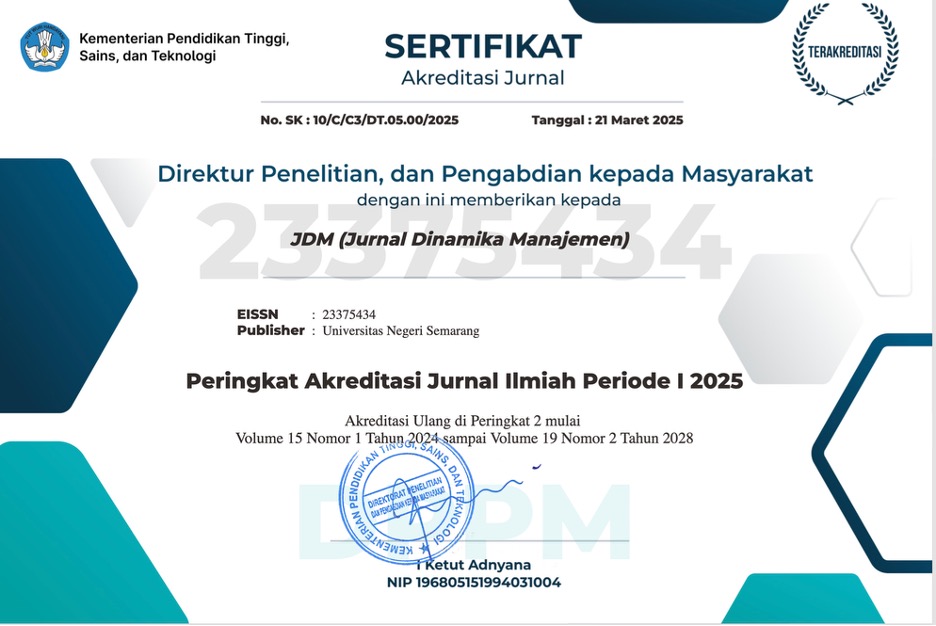Building Bridges of Knowledge: Humanistic Leadership Uniting Campuses And Community In Central Java
DOI:
https://doi.org/10.15294/jdm.v16i1.13247Keywords:
Cross-Generational Collaboration, Humanistic Leadership, Innovative Academic, Psychological Well-being, Reverse MentoringAbstract
This study explores the construction of humanistic leadership and the concepts of cross-generational collaboration and reverse mentoring, psychological well-being as a mediator, and innovative academic productivity as a dependent. The focus of the study is private universities in Central Java. The methodology used is a mixed method approach, where quantitative data were collected through questionnaires distributed to 390 lecturers. Then, the data were analyzed using structural equation modelling facilitated by AMOS software version 24.00. Qualitative data were obtained through interviews and FGDs, with the analysis process involving triangulation and coding supported by NVivo software. The findings of the study concluded that there was a significant interaction between the exogenous and endogenous variables. However, the role of psychological well-being is only a partial mediation, not a full one. Therefore, this comprehensive approach highlights the critical role of various leadership styles and collaborative methodologies in promoting innovative academic behaviour. This finding also explains how important local culture is as inspired by the educational figure Ki Hajar Dewantara through his concept of “ing ngarso sung tuladha, ing madya mbangun karsa, tut wuri handayani” which greatly supports higher education in encouraging innovative behaviour through knowledge sharing, which has an impact on increasing academic productivity in higher education.
